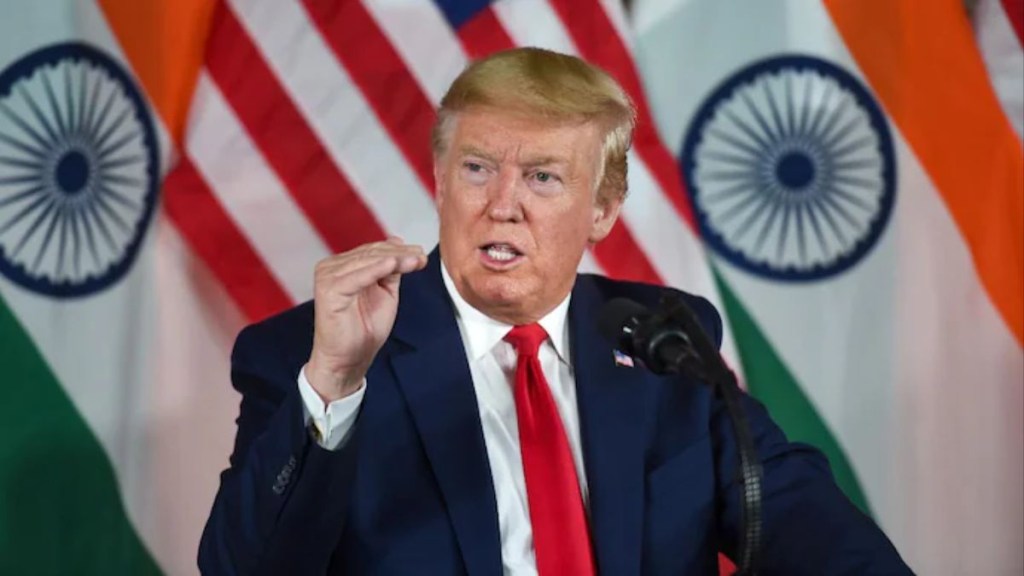As the United States prepares for the inauguration of President-elect Donald Trump on January 20, 2025, security measures are being ramped up to ensure the event’s success amid the heightened threat environment. The event, which will take place at the U.S. Capitol, marks the culmination of two weeks of high-stakes security events, underscoring the nation’s commitment to protecting its democratic processes and safeguarding public safety.
This inauguration will differ dramatically from Trump’s last inauguration four years ago, which was marked by violence and unprecedented political unrest. Since then, the nation has witnessed deep political divisions, the January 6 Capitol insurrection, and heightened domestic threats. In response, a comprehensive security strategy has been devised, ensuring that this momentous event unfolds under intense scrutiny and robust protection.
A Two-Week Stretch of National Security Events
The inauguration of Donald Trump will conclude a two-week stretch of national special security events, a designation that elevates federal funding and coordination to the highest level. These events, organized and overseen by the U.S. Secret Service, include the electoral count on January 19 and former President Jimmy Carter’s state funeral on January 18. All of these occasions are considered of national significance and demand an extraordinary level of law enforcement collaboration and resources.
On January 19, a major rally will be held at the Capital One Arena to kick off the inauguration celebrations. Federal and local law enforcement agencies are on high alert, with a particular emphasis on securing public spaces and preventing potential disruptions.
Security Presence at the Capitol
The inauguration ceremony will take place on the west front of the US Capitol, and security will be tighter than ever. Visible security will include thousands of federal agents, law enforcement personnel, and military members patrolling the area. However, much of the security will be behind the scenes, designed to detect and neutralize threats before they can escalate. This includes bomb detection systems, snipers positioned strategically throughout the area, and radiation detectors to prevent any potential attacks.
In addition to federal forces, the District of Columbia National Guard will deploy approximately 7,800 soldiers for perimeter security. This deployment will assist with traffic control, crowd management, and patrolling Metro stations, ensuring a smooth flow of attendees and preventing any disruption from potential protesters or hostile actors.
Federal Agencies Collaborating for Maximum Security
A distinctive feature of national special security events is the removal of bureaucratic hurdles that usually separate various law enforcement agencies. For the inauguration, federal, city, and state authorities will work closely together, sharing information and coordinating in real-time to respond to any emerging threats. The Secret Service, which has been the lead agency in charge of inauguration security since President John F. Kennedy’s assassination in 1963, will be at the helm, working with agencies like the FBI, the Department of Homeland Security (DHS), and the National Guard.
In fact, the FBI has established command posts at both its Washington field office and its headquarters in Quantico, Virginia, to act as central hubs for intelligence gathering, investigation, and resource deployment. The FBI will assess potential threats and provide support for security operations in real-time, ensuring the safety of both the public and VIPs, including foreign leaders invited to the event.
Increased Scrutiny After Security Breaches
The Secret Service will be under particular scrutiny following recent security breaches. Trump has been the target of two assassination attempts since leaving office, with the most recent incident occurring at his Mar-a-Lago estate in Florida. While he was not injured in either attack, these close calls have put a spotlight on the Secret Service’s preparedness for high-profile events. The agency has pledged to implement “the Cadillac of security models” for this inauguration, meaning maximum protection for the President-elect and his family.
The US Secret Service spokesperson, Anthony Gugliemi, highlighted the importance of the event, noting that national security events are treated as “the gold standard” in terms of protection, with all potential threats addressed with heightened urgency.
Managing Potential Protests and Demonstrations
Despite the extensive security preparations, law enforcement remains vigilant about the possibility of protests or civil disobedience, particularly given the history of unrest surrounding Trump’s presidency. However, law enforcement agencies are not expecting major disruptions and have been working to ensure peaceful demonstrations can occur without threatening the event’s security. Given the lessons learned from the 2021 insurrection, every precaution will be taken to avoid a repeat of past violence.
With the cooperation of multiple agencies and a focus on intelligence and early intervention, law enforcement is confident that the inauguration will proceed smoothly, despite the intense political atmosphere.
Bottomline
The 2025 inauguration of President-elect Donald Trump will take place amid an unprecedented security apparatus, with law enforcement agencies collaborating on every level to ensure the safety of the President-elect, his family, foreign dignitaries, and the public. From visible security measures to covert threat detection, the US is leaving no stone unturned to secure the nation’s most significant event. As the day approaches, both the Secret Service and the FBI will continue to monitor potential threats, preparing for any challenge that may arise on this historic occasion.

